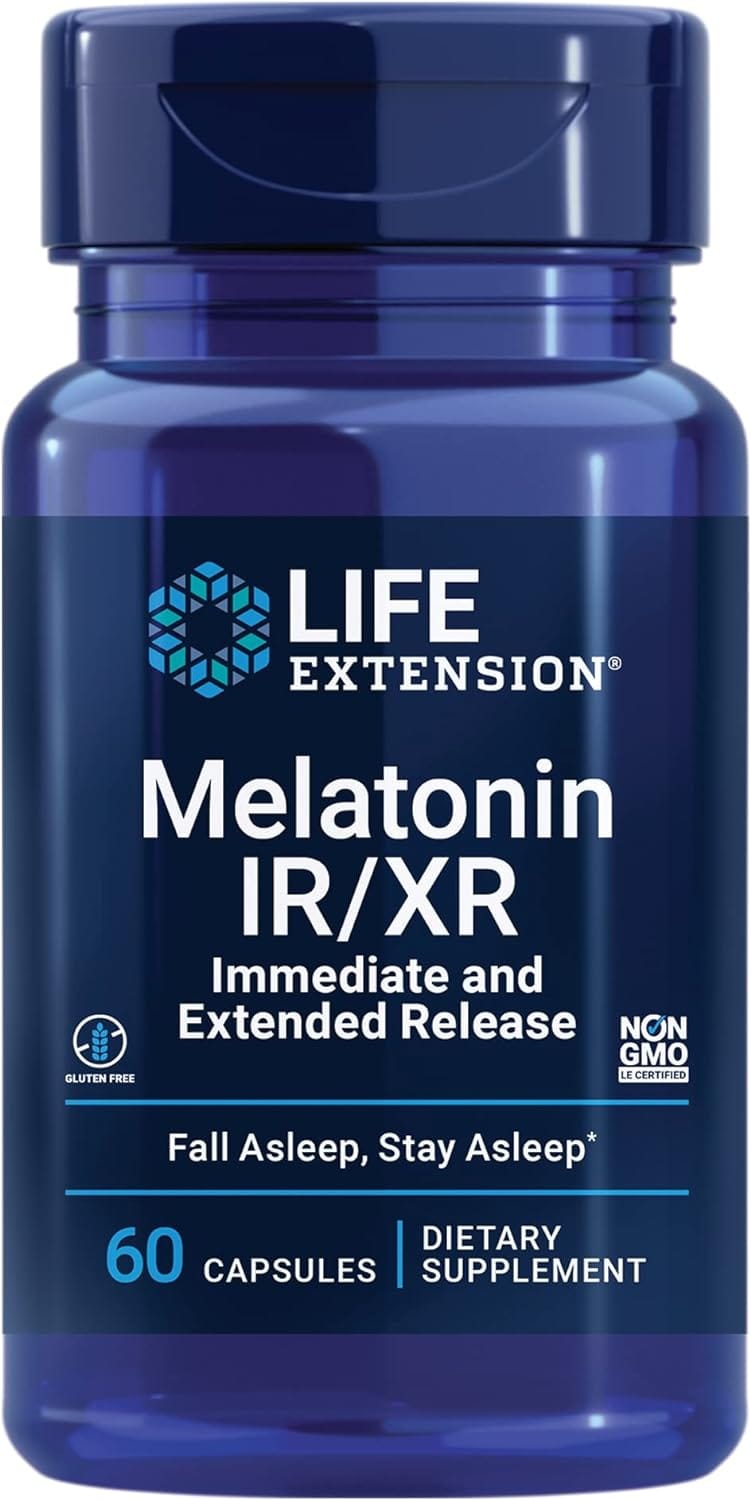One of the most popular ways to restore disturbed sleep is with a melatonin pill/capsule.
It is considered a natural remedy that is safer than sleeping pills.
In reality, it’s much more complicated than that.

What is melatonin
Melatonin is often referred to as the sleep hormone, but that’s not quite true-it’s more of a sleep hormone.
It can indeed help restore sleep, but not in all cases.
Melatonin is a hormone that the body needs to regulate sleep.
It triggers the process of falling asleep.
Sleep regulation is just one of the many functions of melatonin.
Here are more functions of melatonin:
- Regulates blood pressure;
- Regulates digestion;
- Regulates bone growth;
- Protects the nervous system from neurodegeneration;
- Decreases manifestations of mental disorders, especially anxiety;
- Limits pain;
- Serves as a powerful antioxidant and reduces inflammation.

Melatonin in tablets, capsules
Melatonin is one of the most popular drugs for normalizing sleep.
People often take it to combat any kind of sleep disorder, and almost always in doses that are many times higher than necessary.
According to one study, 2.1 percent of Americans took melatonin in the month before the 2017-2018 survey.
Typically, melatonin is sold in tablets ranging from 0.3 to 5 mg.

Life Extension Melatonin IR/XR – Immediate & Extended-Release Melatonin – 7 Hours Support
- PROMOTES UNINTERRUPTED SLEEP – Melatonin promotes healthy sleep/wake patterns and encourages the onset, duration and quality of sleep.
- FAST ACTING – Taken about 30 minutes before bed, Melatonin IR/XR helps you fall asleep quickly and stay asleep all night long.
- INGREDIENTS MATTER – Sourced using only the finest raw ingredients with the purity and potency your body deserves. This product is certified non-GMO and gluten-free.
It is generally considered safe if taken briefly, but scientists have too little data on long-term ingestion.
For example, one small study showed that a long course of melatonin in men may decrease sperm quality.
It is prescription in some countries, and in America it is sold as a dietary supplement, not a drug.
Buy melatonin only as recommended by us, so you can be assured of the best quality and the best prices in the US.
Follow the instructions that come with it.
Buy supplements at
Studies show that melatonin is most effective for these sleep disorders:
- General insomnia – melatonin speeds up falling asleep by an average of 30 minutes;
- Sleep disorders in the older people – these are often associated with decreased melatonin production;
- Disordered, shallow sleep;
- Delayed sleep phase syndrome – the “owl” chronotype, which is a disorder, not a variant of the norm;
- Jet lag, a biorhythm disorder associated with changing time zones;
- Disorders of sleep in irregular or shift work, when a person has to work in the dark hours of the day;
- Non-existent sleep problems that occur infrequently or have occurred recently;
- Sleep disorders in children-but only as a short-term remedy.

Who can and who cannot take melatonin
Melatonin is mostly safe.
But doctors do not recommend its use, provided:
- In dementia;
- For depression;
- People with liver or kidney disease;
- Sufferers from autoimmune diseases;
- Patients on dialysis;
- Pregnant women;
- Breast-feeding women.
Melatonin should also not be taken together:
- Sleeping pills and sedatives;
- Anticonvulsants;
- Benzodiazepines,
- Blood pressure medications;
- Anticoagulants;
- Oral contraceptives;
- Diabetes medications;
- Alcohol;
- Immunosuppressants.

Side effects of melatonin
Melatonin is generally considered a non-toxic substance, but can still cause a number of side effects that occur with high doses:
- Sleepiness;
- Headache;
- Rash;
- Nightmares;
- Gastritis;
- Nausea.
The main cause of their occurrence.
Too high a dose of melatonin.

Life Extension Melatonin IR/XR – Immediate & Extended-Release Melatonin – 7 Hours Support
- PROMOTES UNINTERRUPTED SLEEP – Melatonin promotes healthy sleep/wake patterns and encourages the onset, duration and quality of sleep.
- FAST ACTING – Taken about 30 minutes before bed, Melatonin IR/XR helps you fall asleep quickly and stay asleep all night long.
- INGREDIENTS MATTER – Sourced using only the finest raw ingredients with the purity and potency your body deserves. This product is certified non-GMO and gluten-free.



